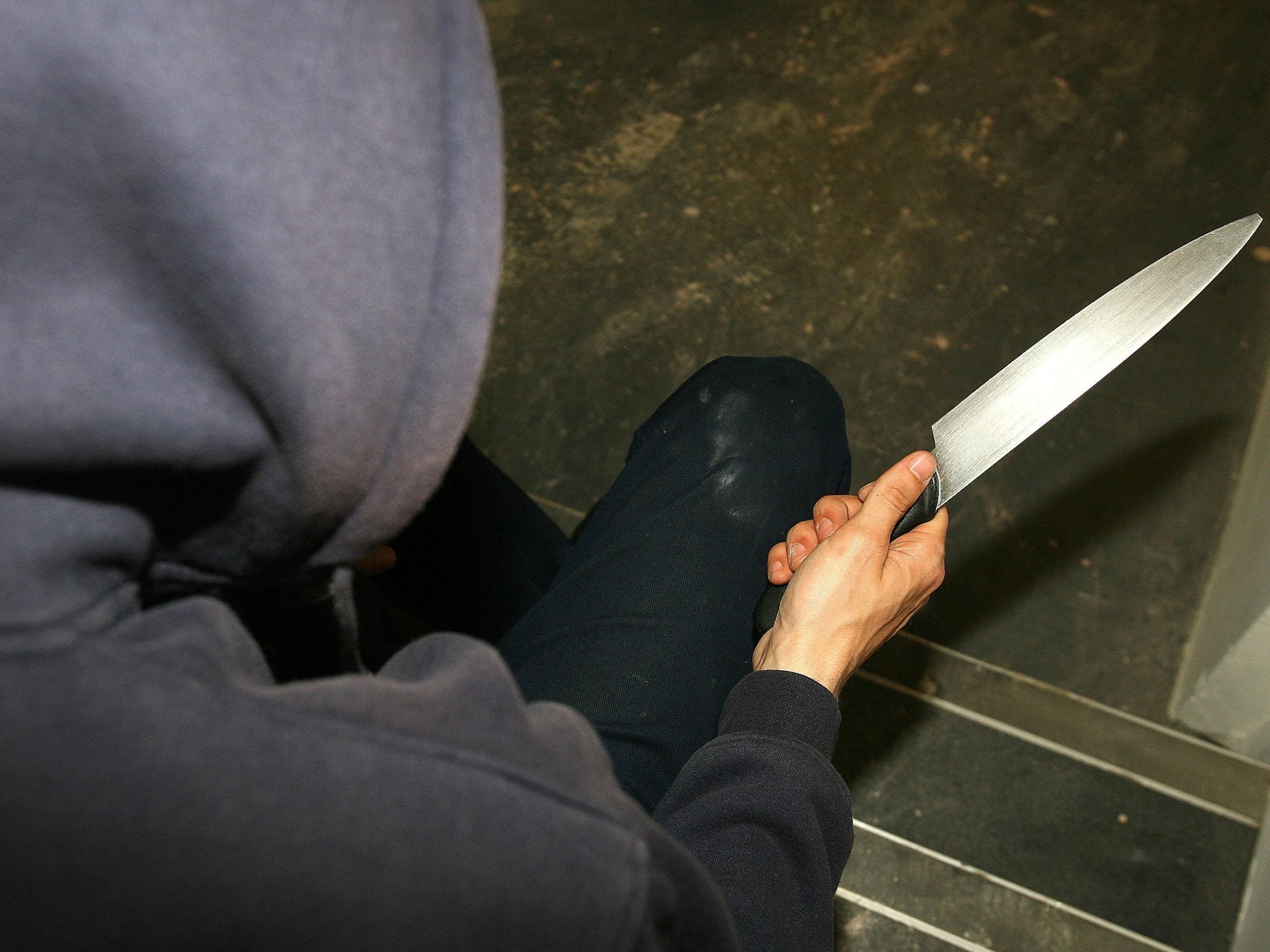Home Office set to place legal duty on doctors, teachers and social workers to spot signs of knife crime involvement
Campaigners welcome idea but say it will require significant funding to work

The Home Office is planning to place a legal duty on doctors, teachers and other public sector workers to identify and raise concerns about children at risk of being involved in knife crime.
Home Secretary Sajid Javid has launched an eight-week consultation into a public health approach to tackling youth knife violence. It will entail a multi-agency public health duty intended to help spot the warning signs that a young person could be in danger, such as presenting in A&E with a suspicious injury, worrying behaviour at school or issues at home.
Campaigners welcomed the idea, but warned that if it was not underpinned by significant funding, it would fail to make a difference.
The Home Office said the joined-up approach would be backed up by legislation to ensure that professionals in health, education, police, social services, housing and the voluntary sector worked together and were held accountable for preventing and tackling serious violence.
Similar approaches have been used in Scotland and Wales, and are designed to ensure all parts of the system works together to support young people and make targeted interventions before they commit violence or are groomed by gangs, the department said.
The announcement comes as the prime minister is set to host a summit to tackle knife crime, which will introduce this multi-agency response to violent crime and will bring together participants from a diverse range of backgrounds including law enforcement, health, the voluntary sector and education.
Young people with experience of living in communities impacted by serious violence will also attend the conference to share their insights.
Knife and weapon offences are at the highest level for nine years in England and Wales, with almost 21,500 crimes dealt with by the criminal justice system last year – the highest number since 2009. The proportion of victims aged 25 to 34 rose by 23 per cent in the year to March 2018.
Ahead of the Summit, Theresa May said: “To bring about lasting change and protect young people from the tragic violence we have seen on our streets, we need to work across society to intervene early and stop them from being drawn into crime.
“Strong law enforcement plays an important role, and the police will continue to have our support on the front line, but we all need to look at what we can do in our communities, and in every part of the system, to safeguard young people."
Rhammel Afflick, a youth campaigner who works closely with young people in some of London's most deprived areas, said the proposal sounded great but that if was not underpinned by significant funding, it would not make a difference.
“The government have a habit of suggesting partnership work just magically happens without significant framework and infrastructure which is funded,” he said.
"Without adequate funding, this will just place more pressures on already stretched public services."
Gary Trowsdale, senior advisor to the Youth Violence Commission and the former chief executive of the Damilola Taylor Trust, echoed mr Afflick's concerns, and described the government's response to knife crime as shambolic.
“The public health approach is the way forward, but it needs significant investment to rebuild the social structures in our most challenged communities broken or decayed after years of neglect," he said.
“It also requires trauma-informed policing which is an issue certainly in London treated more as the elephant in the room than a workable solution.”
Mr Javid described violent crime as being like a disease rotting society, and said it was essential that all public bodies worked together to treat the root causes.
“The public health, multi-agency approach has a proven track record and I’m confident it will help stop this senseless violence and create long-term change. I’m committed to ending this scourge and will use all the tools at my disposal to do so,” he said.
Join our commenting forum
Join thought-provoking conversations, follow other Independent readers and see their replies
0Comments